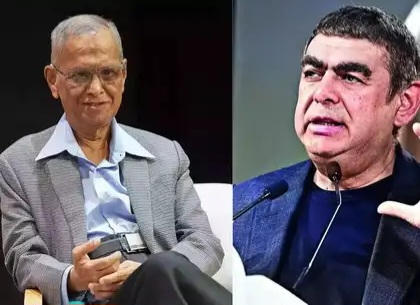24. September 2025
Admin
Wayne Template — “If Murthy and Sikka had agreed”: Infosys’ missed OpenAI bet (Summary)
“If Murthy and Sikka had agreed”: Infosys’ missed OpenAI bet (Summary)

A recent post revived debate over a pivotal moment in India’s tech history: an internal split at Infosys in 2015 between founder N.R. Narayana Murthy and then-CEO Vishal Sikka reportedly led the company to walk away from a proposed early investment in OpenAI — a decision some now say cost Infosys (and India) a transformative position in the global AI race.
Quick Insight: The LinkedIn post that kicked this back into the headlines argues that the missed $1B stake in OpenAI would today be worth many times more, underlining how leadership disagreements and strategy choices can have long-term national tech consequences.
What the Report Says
• Vishal Sikka (CEO 2014–2017) reportedly pushed for bold, AI-first investments — one being a proposed $1 billion commitment to OpenAI in 2015.
• Narayana Murthy and other senior leaders were cautious; internal disagreements contributed to the decision not to proceed.
• Commentators now estimate the missed stake could be worth tens of billions (figures cited in coverage vary), turning this into a high-profile “what if” for India’s AI story.
Why People Care
• Strategic bets in early AI could deliver outsized returns and position firms/nations as leaders — the story highlights how corporate governance and vision can shape national competitiveness.
• The episode fuels debate about balance: prioritize shareholder returns (buybacks) or place large, risky technology bets that could transform future earnings and capabilities.
Reactions & Ripple Effects
• The LinkedIn thread and follow-up pieces have stirred analysts and social commentary, with many arguing that more aggressive early AI investments by India’s IT majors might have accelerated local AI ecosystems.
• Others warn hindsight bias: early-stage bets are risky, and not every missed opportunity means the conservative choice was wrong at the time. Market context and governance responsibilities matter.
Final Thoughts
Whether you see this as a missed golden ticket or a complex governance outcome, the episode is a useful case study: strategic vision, leadership alignment, and risk appetite can reshape industries — and sometimes nations’ positions — for decades. For India’s tech ecosystem, the conversation also underscores why bold R&D and timely investments matter if a country wants to lead in fast-moving fields like AI.
Tip: If you’re following this story, check original posts (LinkedIn threads) and multiple news summaries — they often quote different figures and interpretations.
